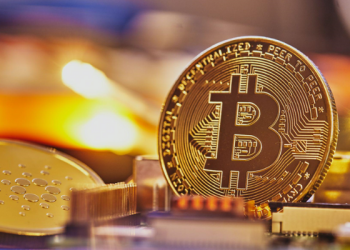The flagship crypto continued its drop on Tuesday as fears of liquidity shortage brought by global fight agent inflation through interest rate hikes
The US headline inflation is expected to accelerate to 1.2% m/m and 8.4% y/y. The core measure, which excludes the volatile food and energy sectors, is also set to rise to 0.5% m/m and 6.6% y/y. All these readings will be new multi-decade highs with the persistent high pace in the monthly price rises justifying the Fed’s red alert inflation mode.
This means a major correction in the current uptrend in yields is not expected any time soon. Even European bonds have cratered with yields breaking key levels recently ahead of the ECB meeting on Thursday. The major German government bond hit its highest yield since 2015 yesterday with the 10-year at 0.78%. This was still negative as of early March which shows the seismic recent moves in bond markets.
Recently, bitcoin has fallen under the $40K mark, a drop of 5.4% for the day after touching a high above $47K at the end of March
Ethereum, the second-largest crypto by market value, is trading roughly over $3K, a decline of more than 6% since the middle of last month, after dropping below this threshold earlier in the day.
The decline in bitcoin’s 50-day moving average, below $42K, has investors wary. In the event of a fix below this level, a direct path to the area of the March lows near $38K is likely.
Altcoins such as Terra’s LUNA token, SOL, and ADA also suffered losses by double digits. Also beaten down significantly were meme coins Dogecoin and Shiba Inu. There was little trading.
Hayes, the former CEO of BitMEX, believes the equity markets could melt down if interest rates rise and the Fed stops its asset purchases. Hayes predicts that the crypto markets will continue to decline and that Bitcoin will drop to $30K and Ether to $2.5K by June.
The NY Fed released a study on Monday revealing that US consumers expect inflation to pick up shortly. Prices for food and housing are expected to rise dramatically in the next 12 months, raising inflation expectations from 6.0% to 6.6%. Expectations for 3 years down from 4.2%.
According to consumers, rent is expected to rise 10.2% in the year ahead, while food costs will jump 9.6%.
A 6% increase in home prices is expected, up from 5.7% previously. Survey participants predict that inflationary pressures will worsen before they improve, which will worry Federal Reserve officials.











